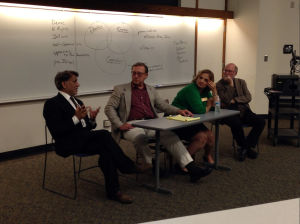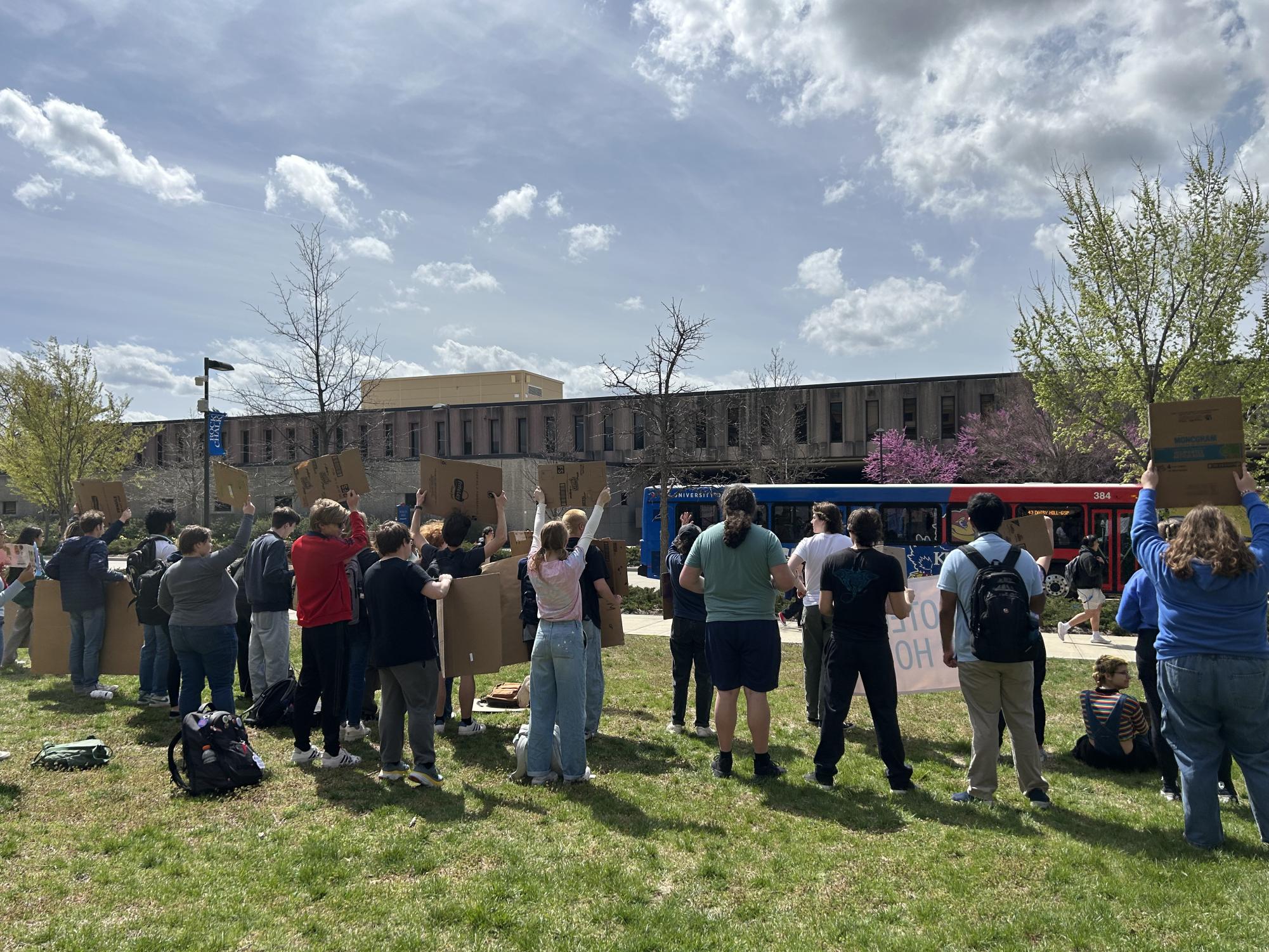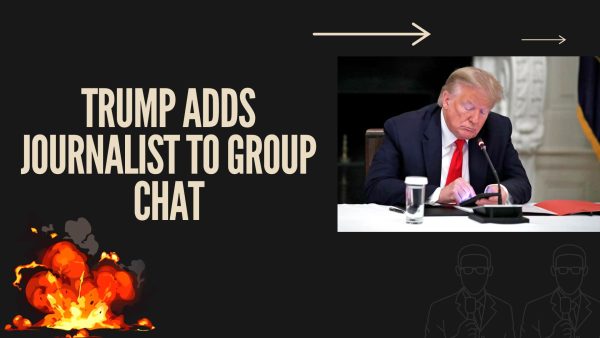Conflict in Egypt forum provides new information for many
The final part of the two part series over conflicts in recent revolutionary countries, the Conflict in Egypt forum, was held on Monday, Sept. 30. in the Henderson Learning Research Center.
The forum was sponsored by the History department and the Phi Alpha Theta History Honorary Society and was open to the community. It consisted of a panel of hosts including history department chair Tom Prasch, law professor Ali Khan, social work professor Bassima Schbley and political science professor Chris Hamilton. They provided information on the recent activity in Egypt.
“We tried to pick a significant area in the world and provide illumination as to what is really going on,” said Prasch.
The forum began with a brief history over Egypt presented by Prasch. He first covered the power that Britain had over the Middle East and Egypt until World War II followed by the revolution of government from secular with the Waft party to a completely independent Egypt in 1952 with the election of Gamal Abdur Nasser. This section closed with an explanation of several demonstrations over the last year and a half, beginning with the Arab Spring demonstrations and revolutionaries in January of 2011.
“Where we will be next week in Egypt’s history is the thing in question,” said Prasch.
The next topic was presented by Khan and focused around the Islamic factors that contribute to Egypt’s government and revolution and the transition the country is making to a “fusion state.” Khan explained the impact of Islam in the government and how it has played an ultimate role in Egypt’s new government while also having secular values and laws.
“Egypt is a fusion state. It’s not going back to just a secular model. The dispute now is who should rule now under this Islamic law,” said Khan.
Tying in with the rich Islamic history and involvement Egypt has experienced, is the Muslim Brotherhood. Schbley focused on how this organization is now illegal after the recent downfall of Mohamed Morsi, a member of the brotherhood.
Hamilton followed with the ties that America has with Egypt. These include funding, similar ideologies and the idea of peace and stability with Israel. He said that over 1.5 billion dollars are aided to Egypt’s military, civil sectors and businesses.
“Although America says we support the revolutionaries and we support the protestors, we give all of this money to the military,” said Hamiliton. “We could help Egypt solve their problems by limited their budget really easily.”
The final part of the forum consisted of questions and statements from the audience. Some of the topics discussed were the revolutions real effects of Egyptians, how the minorities such as Coptic Christians are affected and the media in America’s role in how Egypt and its people are portrayed.
“I really didn’t know much about Egypt and what is really going on. I came because I’m interested in the topic and I wanted to know more, and I definitely learned more after tonight,” said Sierra Kresin, senior history major.
Your donation will support the student journalists of Washburn University. Your contribution will allow us to purchase equipment and cover our annual website hosting costs.









